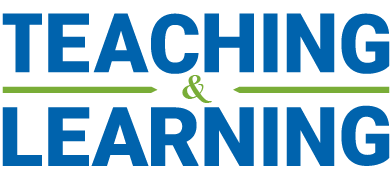Academic Infractions
Despite your very best efforts, some of you will have to deal with academic honesty infractions. What to do in such a situation may not always be entirely clear to all. Therefore, here is a summary of the key procedural steps. The link above offers more details. There are in essence two scenarios:
“Something is happening here, but what it is isn’t exactly clear.”
What are your options?
- Say something to the entire class about maintaining silence or keeping their eyes on their own paper
- Speak to an individual or cluster, indicating that their behaviour appears improper and that they will be watched closely
- Move one or more students to a different location in the room (‘up front’ often works)
You (or the invigilator) “can see [it] clearly now”, cheating is (very likely) occurring:
- Importantly, students will be allowed to complete the examination even if a breach is suspected.
- Much now revolves around proper recording and evidence collection!!
- Any unauthorized materials (e.g., crib sheets) should be taken from the student[s] immediately.
- The students involved should be identified and asked to remain in their seats at the end of the examination, at which time their examination materials should be collected and identified by the instructor or invigilator. Notations should be made by the instructor and/or invigilator to assist in documenting what was observed. (If the offence involves more than one student, it may be appropriate to ask one student to move to another location in the room, to complete the examination.) If copying from a neighbour was observed, you may want to note the seating arrangement as well.
- If the matter is identified by an invigilator, the matter should be reported to the instructor at the earliest possible time. An Exam Incident Report Form should be submitted to the instructor soon thereafter (please see tab on Exam Procedures).
- The instructor shall assess the situation and if persuaded that cheating has taken place, the instructor should:
- Notify the students that the matter is being turned over to the Associate Dean Academic and
- Submit a written report and supporting documentation (exam materials, crib sheets, indications of copied sections if that was the case) to the Associate Dean.
- No examination grade should be entered until the matter has been heard by the Associate Dean and a resolution of the academic dishonesty charge has been concluded.
Schulich Student and Enrolment Services has also created an electronic form for instructors to submit complete information for investigation of suspected academic honesty violations. Please be reminded that when an instructor perceives an academic honesty violation, the protocol is to notify Student Services and the Office of the Associate Dean Academic using this form; instructors are not to pursue further communication about the incident, investigation or disciplinary measures with students. Please read the policy and procedures on academic honesty before submitting the electronic form.
The grade appeal form may be accessed here.

Grounds for Appeal
A student may appeal to the Schulich Appeals Officer (the Associate Dean Academic, or in his/her absence, the Director of the student’s degree program) to have a grade changed on the following grounds only:
- A clerical error has resulted in a miscalculation of the grade.
- A computational grade awarded did not fairly reflect the student’s academic performance according to the grading system used by the instructor.
In the case of (2), the student needs to submit as part of the appeal a compelling argument why she/he thinks the grading is wrong or, if grading is relative in the course or assignment under dispute, inconsistent with that of his/her peers.

Procedures for Appeal
Students should first attempt to resolve the appeal informally with the instructor who may at that time alter the grade. If a further appeal is required, the following procedure must be followed:
- A formal written appeal must be made to the Schulich Appeals Officer (ada@schulich.yorku.ca) following completion of the term within which the course was taken (see deadlines mentioned below) via the online grade appeal form. The appeal needs to address why the attempt to resolve the issue with the instructor has not been successful.
- The Appeals Officer will assure that there has been an attempt to resolve the issue informally, obtaining agreement of the instructor and student. If agreement is obtained, the Appeals Officer shall advise both parties in writing. The instructor will then establish the agreed upon grade and the appeal will terminate.
- If (2) above is unsuccessful, the following occurs:
- The Appeals Officer is empowered to require submission of all relevant documents including, final examination, term examinations, home- work assignments, reports, papers and the instructor’s grade books, as well as other documents identified as pertaining to the student’s grade. Instructors are required to retain all such documents not returned to the student for a period of one Fall or Winter Term after the end of any course’s active term. The Appeals Officer, student and instructor shall be allowed access to all such documents pertaining to the student’s grades.
- The Appeals Officer is authorized to request assistance in appraisal of these documents. Normally the request will be made to the coordinator of the area in which the course was taught or the coordinator’s representative, before other individuals are consulted. The instructor and student may be given access to such appraisals upon request.
- The Appeals Officer will prepare a written decision on the appeal. The decision may be to retain, to raise, or to lower the student’s grade. Substantial and convincing evidence of grading error must be shown for the grade to be changed.
- The student will be notified of the decision by registered mail, email, or other form of confirmed delivery. A copy of the correspondence will be sent to the instructor, and the Schulich Records & Promotions Assistant will be notified of the grade change, if applicable.

Deadlines
A formal written appeal must be made to the Schulich Appeals Officer (ada@schulich.yorku.ca) following completion of the term within which the course was taken. The deadlines are as follows:
- Fall Term: February 15
- Winter Term: June 15
- Summer Term: September 30
As only one appeal per course will be accepted, students are advised to wait until they have received all of their marks for a course before submitting. Students who have not received all course marks at the time of the relevant deadline should contact ada@schulich.yorku.ca to discuss the possibility of an extension.

Late Grade Reappraisal
Appeals for late grade reappraisals (past the deadline date) should be directed to ada@schulich.yorku.ca.The appeal shall contain a compelling argument for and evidence of extenuating circumstances that prevented the student from appealing on time. In the case of denial, an appeal may be made to the Schulich Executive Committee.

Appealing the Decision of an Appeals Officer
The student or the instructor may apply for leave to appeal the decision of the Appeals Officer to the Executive Committee of the Schulich Faculty Council within fourteen (14) calendar days of receipt of the registered letter containing the appeal decision. Please see FAQs: Appeals for more information.


